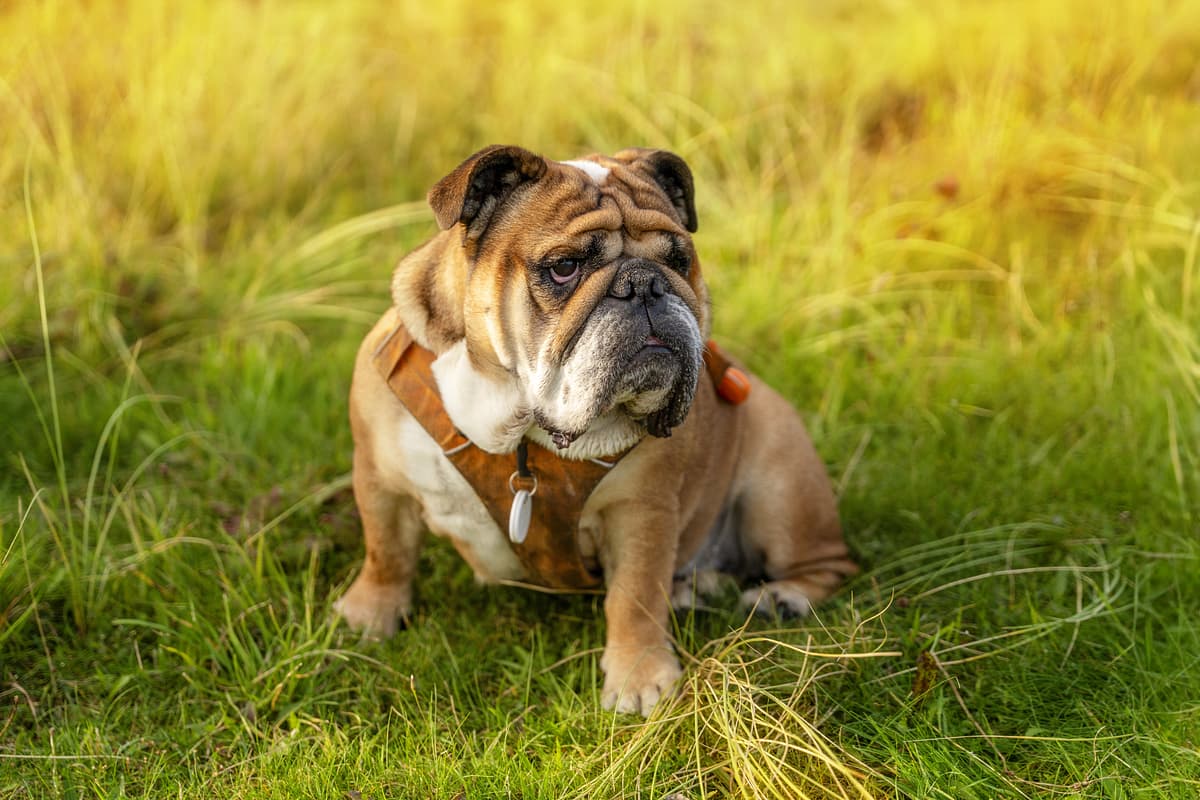Parson Russell Terrier vs English Bulldog
Discover the differences between Parson Russell Terrier and English Bulldog to make the best choice for your situation.
Try different breeds

Parson Russell Terrier
Energetic, bold, and intelligent, this terrier thrives on adventure and companionship. Agile and lively, it brings spirited playfulness and loyalty to any household.

English Bulldog
Stocky, courageous, and affectionate, this breed charms with its wrinkled face and calm nature. Loyal and gentle, it thrives as a loving family companion.
Quick comparison
Small
6–8 kg
Harsh, straight
13–15 years
5–7 kg
High energy
Medium
23–25 kg
Short, smooth
8–10 years
18–23 kg
Low activity needs
Personality & behavior
Compare the personality traits and behavioral characteristics of both breeds.
Parson Russell Terrier
Outgoing and sociable with people and dogs
Quick learner, responds well to training
Highly energetic, requires regular vigorous exercise
Loves games and interactive activities daily
Adjusts moderately to new environments and routines
English Bulldog
Affectionate and gentle with family and children
Learns basic commands with some patience
Prefers lounging over vigorous physical activity
Enjoys play but tires fairly quickly
Adjusts well to most living environments
Care needs
Exercise, grooming, and daily care requirements
Parson Russell Terrier
Patellar luxation, lens luxation
English Bulldog
Brachycephalic syndrome, skin fold infections
Suitability
How well each breed fits different living situations and families
Parson Russell Terrier
Not ideal
Needs experienced handling and consistent training to manage energy and independence
Challenging fit
High activity level and barking can be disruptive in small spaces
Perfect fit
Thrives with regular activity and enjoys participating in energetic routines
Good with supervision
Playful and affectionate but may be too boisterous for very young children
Needs careful introduction
Strong prey drive can create issues with smaller pets or same-sex dogs
Struggles with solitude
Becomes bored and destructive if left alone for extended periods
English Bulldog
Good option
Easygoing, low-maintenance nature suits owners with limited dog experience
Excellent fit
Moderate exercise needs and calm demeanor work well in small living spaces
Not ideal
Low stamina and breathing issues make them unsuited for high-activity lifestyles
Very suitable
Gentle, patient, and tolerant with young children when properly socialized
Usually compatible
Generally sociable but may need guidance with other pets, especially dogs
Not recommended
They struggle with long periods alone and are prone to separation anxiety
Breed strengths
What each breed excels at and their best qualities
Parson Russell Terrier
- Energetic and enthusiastic playmate
- Strong prey drive for vermin control
- Highly intelligent and quick learner
- Agile and excels in canine sports
- Loyal and forms strong family bonds
English Bulldog
- Affectionate with family members
- Generally good with children
- Low exercise requirements
- Minimal grooming needs
- Adaptable to apartment living
Challenges & considerations
Potential challenges and considerations for each breed
Parson Russell Terrier
- Prone to digging and escaping yards
- Needs extensive daily physical exercise
- Can be stubborn during training sessions
- May chase small pets or wildlife
- Tends to bark frequently when alert
English Bulldog
- Prone to respiratory problems
- High risk of overheating
- Susceptible to skin infections
- Can be stubborn during training
- Tends to drool frequently
Ready to choose your perfect breed?
Learn more about each breed or compare other breeds to find the perfect match for your lifestyle.
Discover more helpful tools
Make use of our other free tools to get the most out of your pet experience
